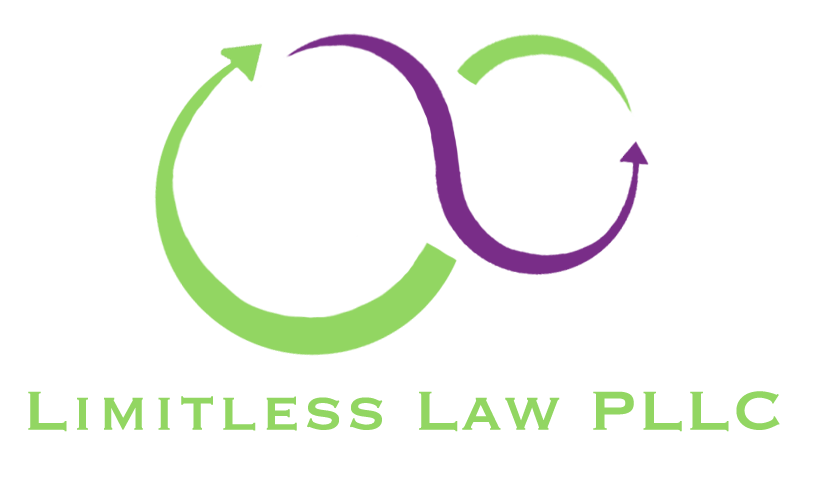Understanding How Named Death Beneficiaries Impact Your Estate Plan

At Limitless Law PLLC, we often guide clients through the intricacies of estate planning. One powerful yet sometimes misunderstood tool in your estate planning arsenal is the ability to name a "death beneficiary" on your financial accounts. Whether it's a Transfer-on-Death (TOD) designation for brokerage accounts, a Payable-on-Death (POD) designation for bank accounts, or a beneficiary designation on retirement accounts and life insurance policies, these simple steps can have a significant impact on how your assets are distributed after your passing.
Here are the key effects of naming a death beneficiary:
1. Bypassing Probate: A Streamlined Transfer
One of the most significant advantages of using death beneficiaries is that the assets in those accounts typically pass directly to your named beneficiary without going through the often time-consuming and potentially costly process of probate.
Think of it like a direct delivery system for your assets. Upon your death, the beneficiary usually needs to present a death certificate and identification to the financial institution, and the funds or assets are transferred directly to them. This can provide your loved ones with quicker access to funds and simplify the estate administration process for those accounts.
2. Control During Your Lifetime:
Crucially, naming a death beneficiary does not relinquish your control over the account during your lifetime. You remain the sole owner (or joint owner, as applicable). You can:
- Make deposits and withdrawals.
- Manage the investments.
- Change the beneficiary designation at any time, for any reason, as long as you are legally competent.
Your beneficiary has no rights to the account while you are alive. It's a future transfer, effective only upon your death.
3. Flexibility in Estate Planning:
Death beneficiary designations offer flexibility in your overall estate plan. You can designate different beneficiaries for different accounts, allowing for tailored distribution of your assets. For example, you might want your brokerage account to go to one child and your savings account to another.
4. Potential Tax Implications (Be Aware!):
While the transfer itself avoids probate, it does not necessarily avoid estate taxes. The value of assets passing via death beneficiary designations is generally included in your taxable estate for federal and Washington State estate tax purposes.
Furthermore, the beneficiary may be responsible for income taxes on certain types of accounts, such as traditional IRAs or 401(k)s, upon receiving the funds. It's crucial to understand the tax implications of each type of account and how beneficiary designations might affect them.
4. Coordination with Your Will (Important!):
While death beneficiary designations bypass probate for those specific accounts, it's essential to ensure they align with your overall estate plan as outlined in your will. Conflicts between your will and beneficiary designations can lead to confusion, legal challenges, and unintended consequences.
Example: If your will states that all your assets should be divided equally among your three children, but you've named only one child as the beneficiary on a significant bank account, that account will pass solely to that child, potentially creating an unequal distribution of your estate.
5. Considerations for Specific Types of Assets and Accounts:
- Retirement Accounts (IRAs, 401(k)s): These accounts have specific rules regarding beneficiary designations and required minimum distributions for beneficiaries. It's crucial to understand these rules to maximize tax benefits for your loved ones.
- Life Insurance Policies: Naming beneficiaries on life insurance policies ensures the proceeds are paid directly to your chosen individuals, providing immediate financial support without going through probate.
- Brokerage Accounts (TOD): Transfer-on-Death designations allow for the smooth transfer of stocks, bonds, and other securities.
- Bank Accounts (POD): Payable-on-Death designations are straightforward for savings and checking accounts.
The Takeaway: Plan Carefully and Seek Guidance
Naming death beneficiaries on your financial accounts is a powerful tool for simplifying asset transfer and providing for your loved ones. However, it's crucial to understand the implications and ensure these designations work in harmony with your overall estate plan.
At Limitless Law PLLC, we help our clients navigate these decisions, ensuring their assets are distributed according to their wishes while minimizing potential complications and tax burdens. Don't leave these important decisions to chance. Contact us today for a strategy session to discuss your estate planning needs and how death beneficiary designations can fit into your comprehensive plan. Call 360-685-0145 or click here to learn more.
This blog post is for informational purposes only and does not constitute legal advice. If you have questions about your own legal rights and options, please contact the knowledgeable team at Limitless Law PLLC to schedule a strategy session with our attorney. Call 360-685-0145 or click here to learn more.






